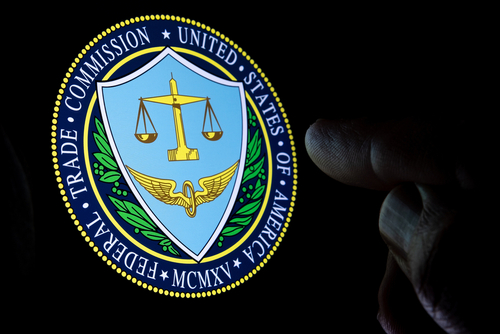Showing results for: “digital markets act”
Closing the Rural Digital Divide Requires Understanding the Rural Digital Divide
I had the pleasure last month of hosting the first of a new annual roundtable discussion series on closing the rural digital divide through the University of Nebraska’s Space, Cyber, and Telecom Law Program. The purpose of the roundtable was to convene a diverse group of stakeholders — from farmers to federal regulators; from small ... Closing the Rural Digital Divide Requires Understanding the Rural Digital Divide
The Tariff Act is indeed protectionist — and that’s how Congress wants it
Although not always front page news, International Trade Commission (“ITC”) decisions can have major impacts on trade policy and antitrust law. Scott Kieff, a former ITC Commissioner, recently published a thoughtful analysis of Certain Carbon and Alloy Steel Products — a potentially important ITC investigation that implicates the intersection of these two policy areas. Scott was ... The Tariff Act is indeed protectionist — and that’s how Congress wants it
Manne & Stout 1: The Illogic of a Contract/Merger Equivalency Assumption in the Assessment of Vertical Mergers
[TOTM: The following is part of a symposium by TOTM guests and authors on the 2020 Vertical Merger Guidelines. The entire series of posts is available here. This post is authored by Geoffrey A. Manne (President & Founder, ICLE; Distinguished Fellow, Northwestern University Center on Law, Business, and Economics ); and Kristian Stout (Associate Director, ... Manne & Stout 1: The Illogic of a Contract/Merger Equivalency Assumption in the Assessment of Vertical Mergers
The Collateral Order Doctrine and State Action Immunity: Salt River Power District, Antitrust Federalism, and the Burden of State-Supported Monopoly
On December 1, 2017, in granting certiorari in Salt River Project Agricultural Improvement and Power District v. SolarCity Corp., the U.S. Supreme Court agreed to consider “whether orders denying antitrust state-action immunity to public entities are immediately appealable under the collateral-order doctrine.” At first blush, this case might appear to involve little more than a ... The Collateral Order Doctrine and State Action Immunity: Salt River Power District, Antitrust Federalism, and the Burden of State-Supported Monopoly
Consumer Welfare-Based Antitrust Enforcement is the Superior Means to Deal with Large Digital-Platform Competition Issues
There has been a rapid proliferation of proposals in recent years to closely regulate competition among large digital platforms. The European Union’s Digital Markets Act (DMA, which will become effective in 2023) imposes a variety of data-use, interoperability, and non-self-preferencing obligations on digital “gatekeeper” firms. A host of other regulatory schemes are being considered in ... Consumer Welfare-Based Antitrust Enforcement is the Superior Means to Deal with Large Digital-Platform Competition Issues
Understanding ownership and property in the Digital Age
What does it mean to “own” something? A simple question (with a complicated answer, of course) that, astonishingly, goes unasked in a recent article in the Pennsylvania Law Review entitled, What We Buy When We “Buy Now,” by Aaron Perzanowski and Chris Hoofnagle (hereafter “P&H”). But how can we reasonably answer the question they pose ... Understanding ownership and property in the Digital Age
So What’s Going to Happen to Securities Fraud Class Actions? Some Thoughts on Halliburton
On Wednesday, the U.S. Supreme Court heard oral argument in Halliburton v. Erica P. John Fund, a case that could drastically alter the securities fraud landscape. Here are a few thoughts on the issues at stake in the case and a cautious prediction about how the Court will rule. First, some quick background for the ... So What’s Going to Happen to Securities Fraud Class Actions? Some Thoughts on Halliburton
Pushing the Limits? A Primer on FTC Competition Rulemaking
Since its founding in 1914, the Federal Trade Commission (FTC) has held a unique and multifaceted role in the U.S. administrative state and the economy. It possesses powerful investigative and information-gathering powers, including through compulsory processes; a multi-layered administrative-adjudication process to prosecute “unfair methods of competition (UMC)” (and later, “unfair and deceptive acts and practices ... Pushing the Limits? A Primer on FTC Competition Rulemaking
Noah Phillips’ Major Contribution to IP-Antitrust Law: The 1-800 Contacts Case
Recently departed Federal Trade Commission (FTC) Commissioner Noah Phillips has been rightly praised as “a powerful voice during his four-year tenure at the FTC, advocating for rational antitrust enforcement and against populist antitrust that derails the fair yet disruptive process of competition.” The FTC will miss his trenchant analysis and collegiality, now that he has ... Noah Phillips’ Major Contribution to IP-Antitrust Law: The <em>1-800 Contacts</em> Case
Twitter v. Taamneh and the Law & Economics of Intermediary Liability
The Senate Judiciary Committee’s Subcommittee on Privacy, Technology, and the Law will host a hearing this afternoon on Gonzalez v. Google, one of two terrorism-related cases currently before the U.S. Supreme Court that implicate Section 230 of the Communications Decency Act of 1996. We’ve written before about how the Court might and should rule in ... Twitter v. Taamneh and the Law & Economics of Intermediary Liability
10 Things the American Innovation and Choice Online Act Gets Wrong
The Senate Judiciary Committee is set to debate S. 2992, the American Innovation and Choice Online Act (or AICOA) during a markup session Thursday. If passed into law, the bill would force online platforms to treat rivals’ services as they would their own, while ensuring their platforms interoperate seamlessly. The bill marks the culmination of ... 10 Things the American Innovation and Choice Online Act Gets Wrong
Taking Cost-Benefit Analysis Seriously in Consumer-Data Regulation
In its Advance Notice for Proposed Rulemaking (ANPR) on Commercial Surveillance and Data Security, the Federal Trade Commission (FTC) has requested public comment on an unprecedented initiative to promulgate and implement wide-ranging rules concerning the gathering and use of consumer data in digital markets. In this contribution, I will assume, for the sake of argument, ... Taking Cost-Benefit Analysis Seriously in Consumer-Data Regulation









